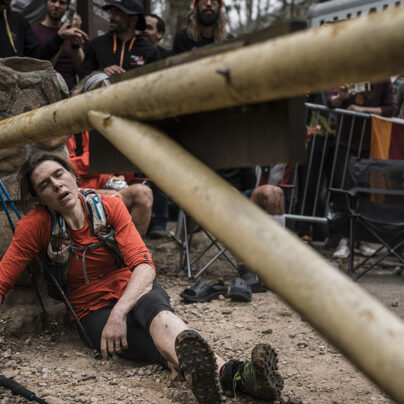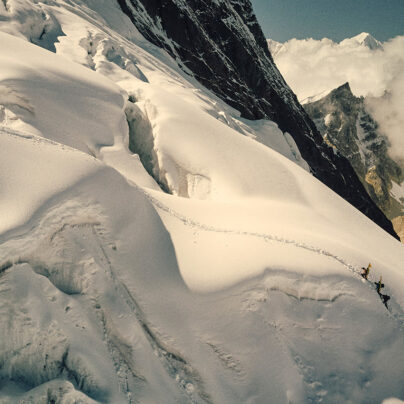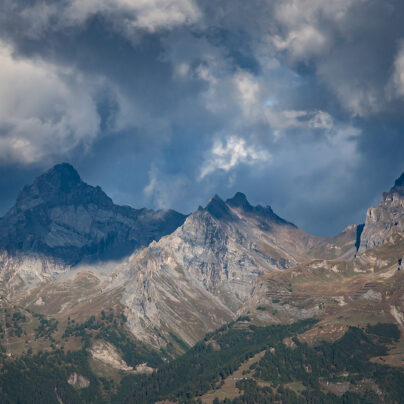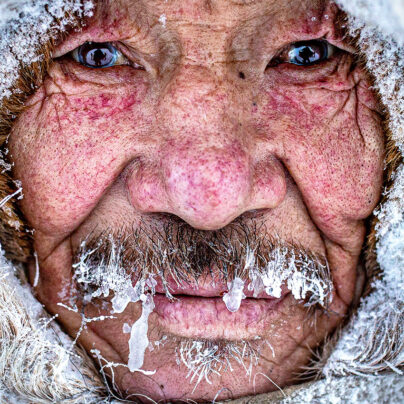Ski Pakistan
Youth Outreach Ski Camp
Andreas Gumpenberger // Photos and Film by Jan Eric Euler
I ask Mirza how much longer we’re going to be driving to Shimshal. He says about three hours – which is what he said about three hours ago. After a couple of days in Pakistan we’ve already made up a standard calculation to make their timing match ours: Pakistani time times three equals our time, more or less. I lean back into my seat and try to relax while the jeep is shaking.
But let’s go back to the beginning.
We arrived in Islamabad after a few hours squished into tiny airplane seats. Spirits were high, but the next surprise was already waiting for us: when the baggage-claim carousel stopped rolling, we realised that some of our bags hadn’t made it, including all of our ski equipment.
Pakistan has its own rules and way of life. Our first encounter with the country had already revealed the most important lesson we would learn along the way: time is relative. Nobody could tell us when to expect our luggage to arrive, nor where it might have taken the wrong direction. On top of that, we arrived on a weekend and, of course, the lost-luggage counter was closed till Monday. Waiting wasn’t our strength, coming from an always-hustling Western society, but by the end of our trip we would be close to mastering the art of patience.
While our luggage was (hopefully) somewhere on its way to Islamabad, we found a place to stay and rest. Let me introduce the team: two Austrian ski guides, myself (Andreas Gumpenberger) and Stefan Ager, plus the photographer and filmmaker Jan Eric Euler. We followed an invitation to come to Pakistan by Mirza Ali and his well-known sister, mountaineer Samina Baig.
Mirza is the founder and leader of Pakistan Youth Outreach – an organisation that brings all kinds of outdoor sports to the country, and gives kids and young adults a platform to both try them out and learn from national and international teachers.
Mirza is particularly concerned with the participation of young girls, as a vital step towards gender equality. His sister Samina, 25, is a wonderful example. She was the first Muslim and Pakistani woman to succeed in climbing all seven summits, a list consisting of each continent’s highest mountain. The best known – and of course the highest – is Everest at 8,848m. No question – Samina is an ideal role model for Pakistan’s girls and women.
Even though Pakistan has access to some of the most beautiful and impressive mountains in the world, and limitless potential for ski mountaineering and ski tourism, Samina and Mirza didn’t have much skiing experience before our visit. The idea started years ago in 2008 when Mirza met Stephan Keck – a top Austrian alpinist and mountain guide – on the top of Manaslu, an 8,000er in Nepal. Their conversation sparked the entire project. Mirza could count on Austrian support through the collaboration with Stephan Keck and his lasting belief in establishing skiing in Pakistan. In February 2015 Stephan Keck began to work for the project and went to Pakistan to arrange everything locally, and this year Stefan Ager and I followed in his footprints, jumping at the chance to be on the mission. We wanted to spread the love of skiing, and through skiing we hoped to be able to follow higher goals like peace, team spirit, gender equality. But although our families and friends worried about the political situation in Pakistan, we were excited by the opportunity to dive into an unknown culture and to get to know unfamiliar places.
In Islamabad the positive attitude of the people around us made us forget about the initial problems with our luggage. Our ski equipment arrived just one day late. Only one of our bags didn’t make it at all – and with it, all of Stefan’s clothes. So he borrowed most of the more important stuff, apart from the underwear– but who wants to change their pants when it’s freezing cold anyway?
Pakistan has its own rules and way of life. Our first encounter with the country had already revealed the most important lesson we would learn along the way: time is relative. Nobody could tell us when to expect our luggage to arrive, nor where it might have taken the wrong direction.
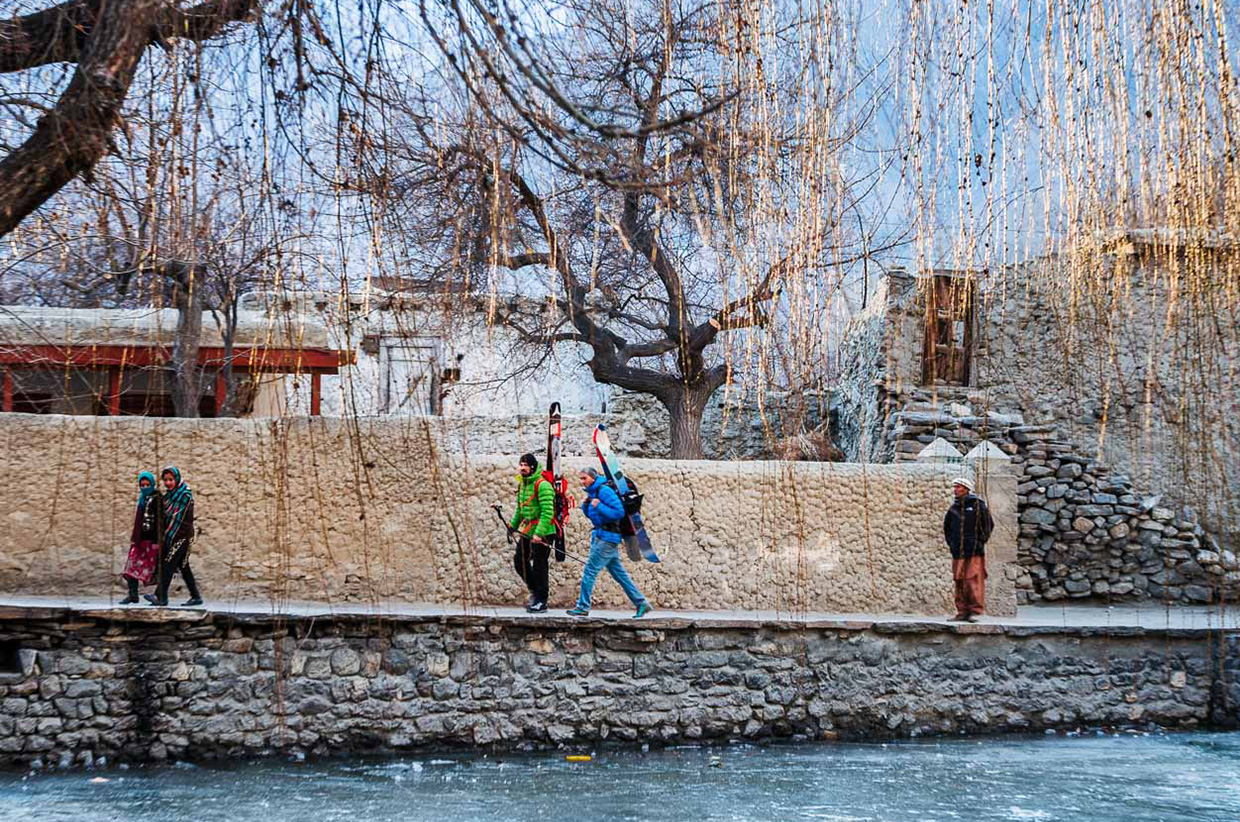
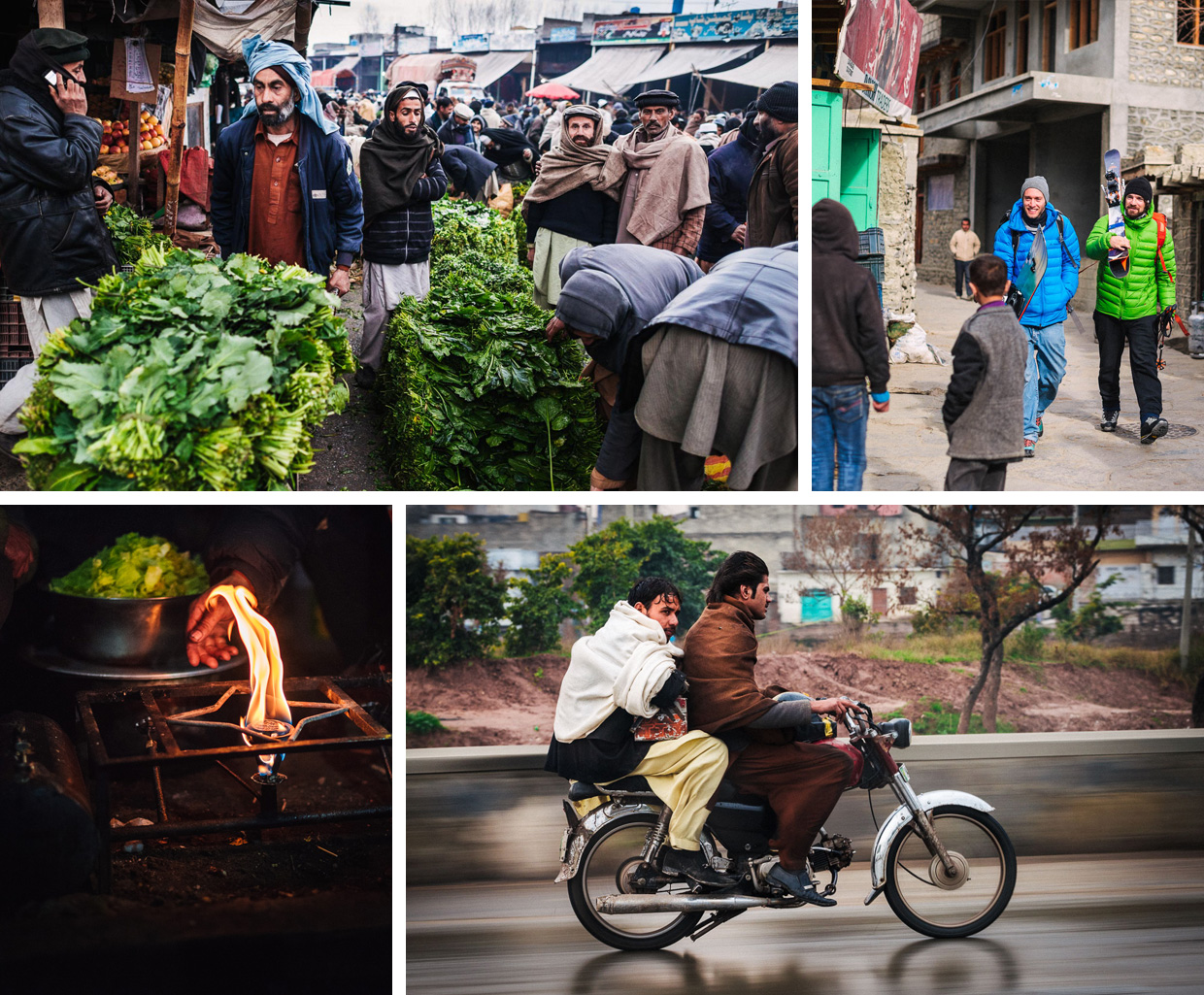
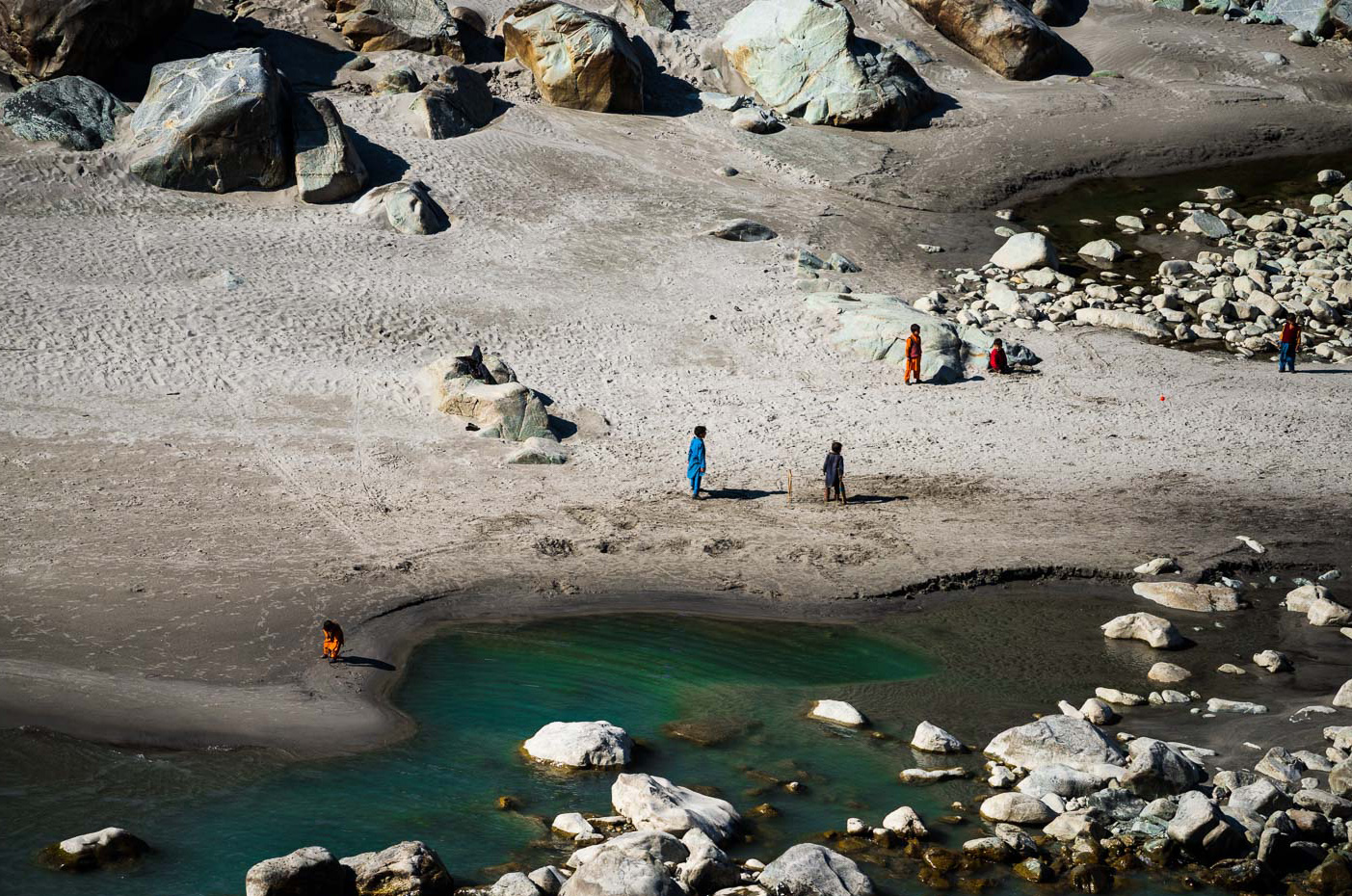
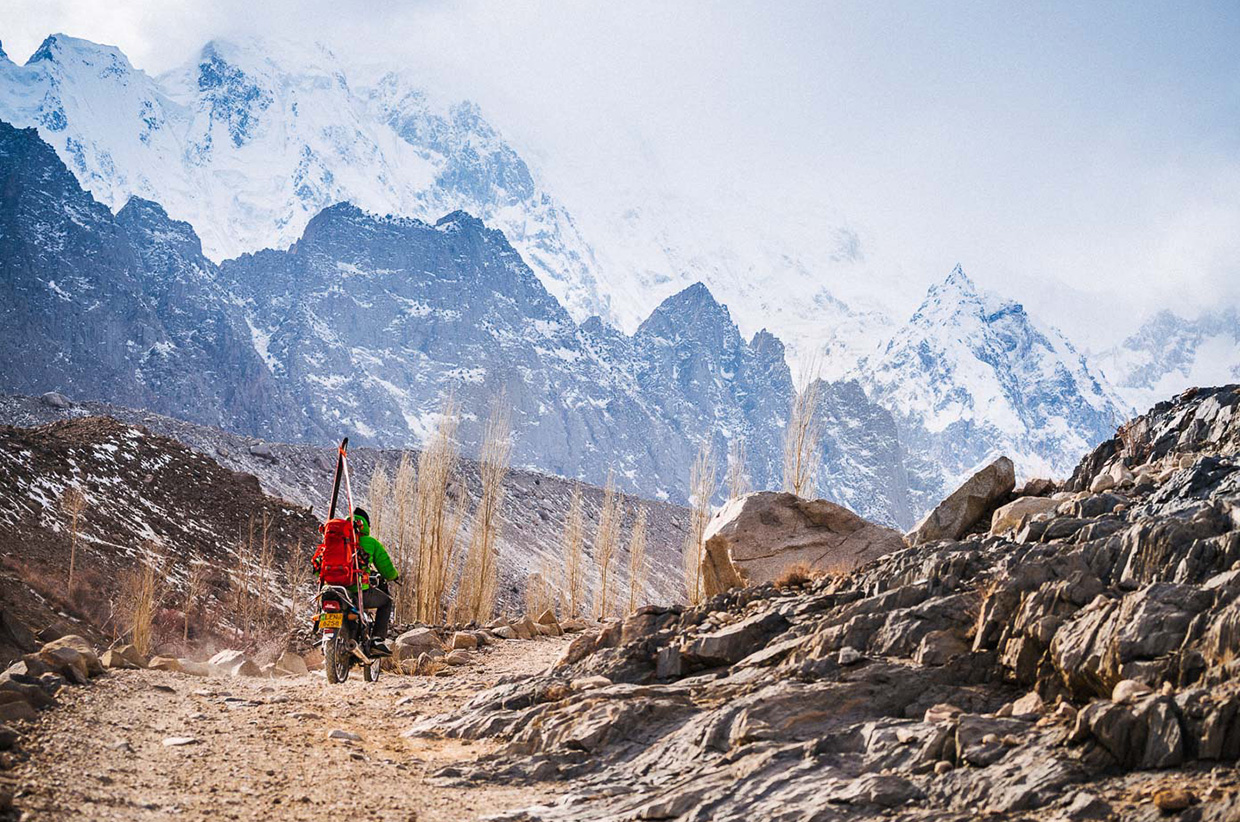
A jagged ring of breathtaking mountains surrounded us, many over 6,000m or 7,000m. Since there was no lift or piste, we had to be a little creative and put in some work. The entire team laboured to prepare our own private ski slope close to the camp.
Finally we left the city and headed up north on the famous Karakoram highway. We had to cover a distance of 700km to get to the small village of Karimabad in the Hunza region. The actual highway barely deserved the name – it was sprinkled with deep potholes that made it almost impossible to sleep while we travelled. We kept passing military control posts. Since a few foreign mountaineers were killed in a terrorist attack at the Nanga Parbat base camp two years ago, military protection for tourists in this area has increased. Unrest and violence would be a poor advert for the sought-after tourism, and they tried their best to keep us safe. From time to time armed soldiers would join us in the car and stayed till the next military checkpoint. It felt weird. We Westerners are so used to feeling safe and surrounded by comfort. For most of us the only encounter with scenes like these are through pictures in the news or in newspapers, and now, all of a sudden, we were right in the picture.
After an exhausting 14-hour drive on the bumpy road, we finally made it to Hunza. Here we met Mirza, who welcomed us with open arms and a sincere smile. After two days stuffed with meetings and preparations for our ski camp, we set out for Simshal, a small and remote mountain village about 3,300m above sea level. The road that led us there was extraordinary: it had taken over 18 years to build, and was only wide enough for one car to find its way up the broken rock. Landslides waiting to happen threatened to take the road down with them, deep into the gaping canyon. Looking out of the window was not the best idea, especially if you were afraid of heights: at the highest point there was a 300m drop just a few centimetres from our wheels, and the gravel didn’t look too trustworthy. But the driver had some experience under his belt and seemed to be sure about his skills. He safely brought us to the family home of Mirza and Samina. After meeting Samina and resting there overnight, the next morning we walked to base camp at over 4,000m above sea level, heavily laden with all our gear on our backs.
When we finally made it to the camp, our young students were eagerly waiting for us, full of joy and smiles. A jagged ring of breathtaking mountains surrounded us, many over 6,000m or 7,000m. Since there was no lift or piste, we had to be a little creative and put in some work. The entire team laboured to prepare our own private ski slope close to the camp. The snow conditions were far from perfect, without the deep fresh powder we had hoped for – instead we had to deal with an enormous snow crust on top of loose sugary snow crystals. But together we made it work. All of us walked crisscross to stamp the snow down and in the end we had some sort of skiable slope.
The kids remained highly motivated. Their enthusiasm impressed us. Despite extremely cold temperatures, which we couldn’t even escape at night despite being cocooned in sleeping bags and tents, the young people took great pleasure in their skiing. Before breakfast some of the kids were on the slope already. Although not all of them came from the high mountains, but instead from the lower, hot plains of southern Pakistan, not even the walk uphill in thin air after each run could stop them. Students learned the basic skills fast and progression after five days was tremendous.
At the end of the course we organised a little ski contest, just like we would finish every regular ski course at home. It was a blast. Some of the kids really showed some talent for skiing. Mirza’s dream of raising athletes to participate in the Winter Olympics 2022 seemed one step closer, even though the students would still have a long way to go through countless training sessions from here. For this reason Mirza is planning a training camp in Austria.
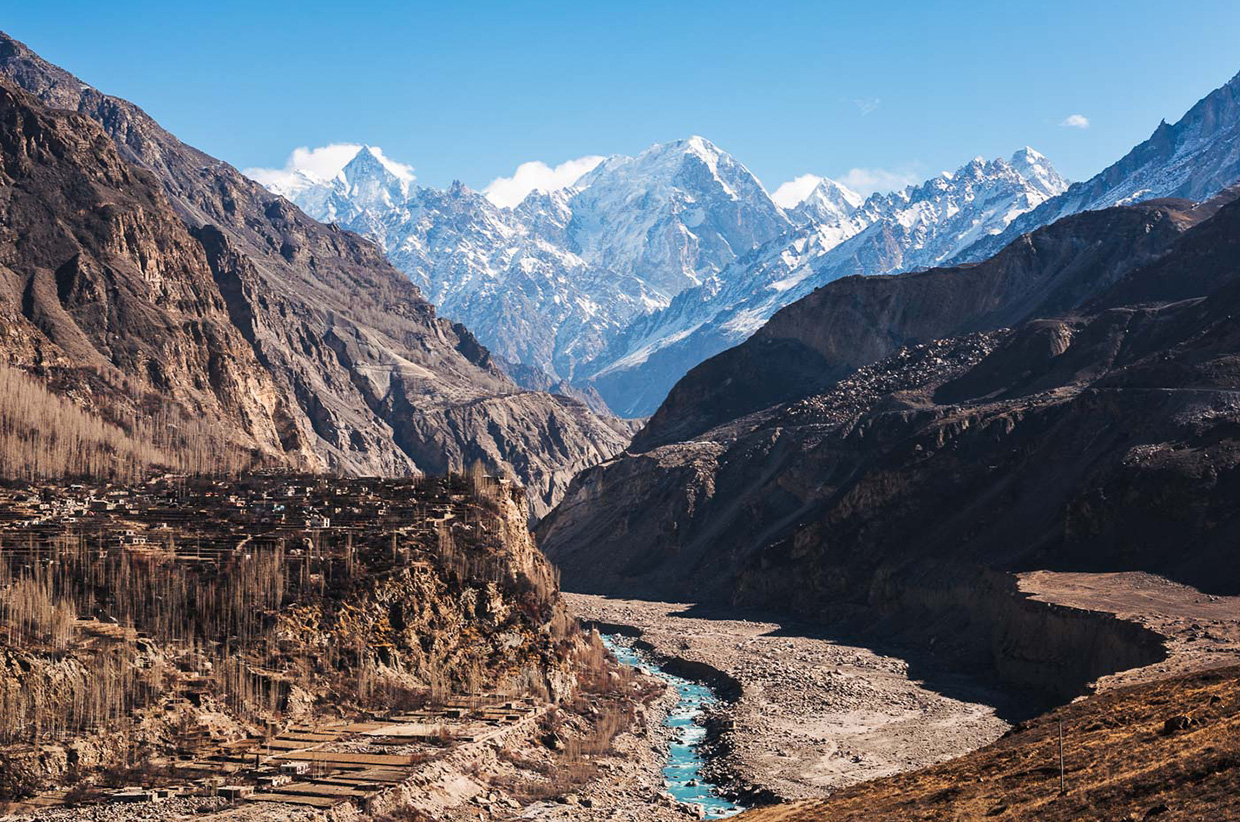

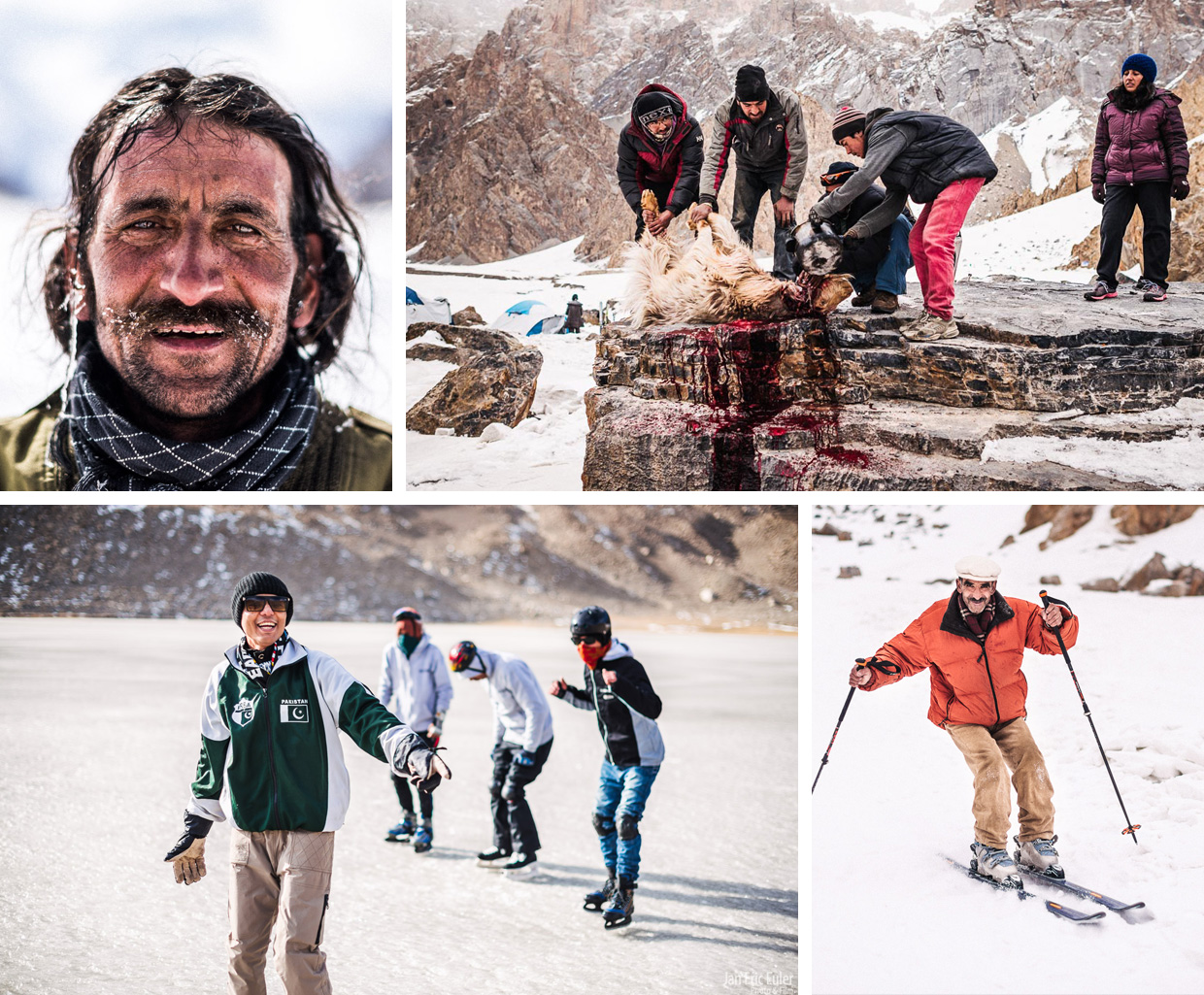
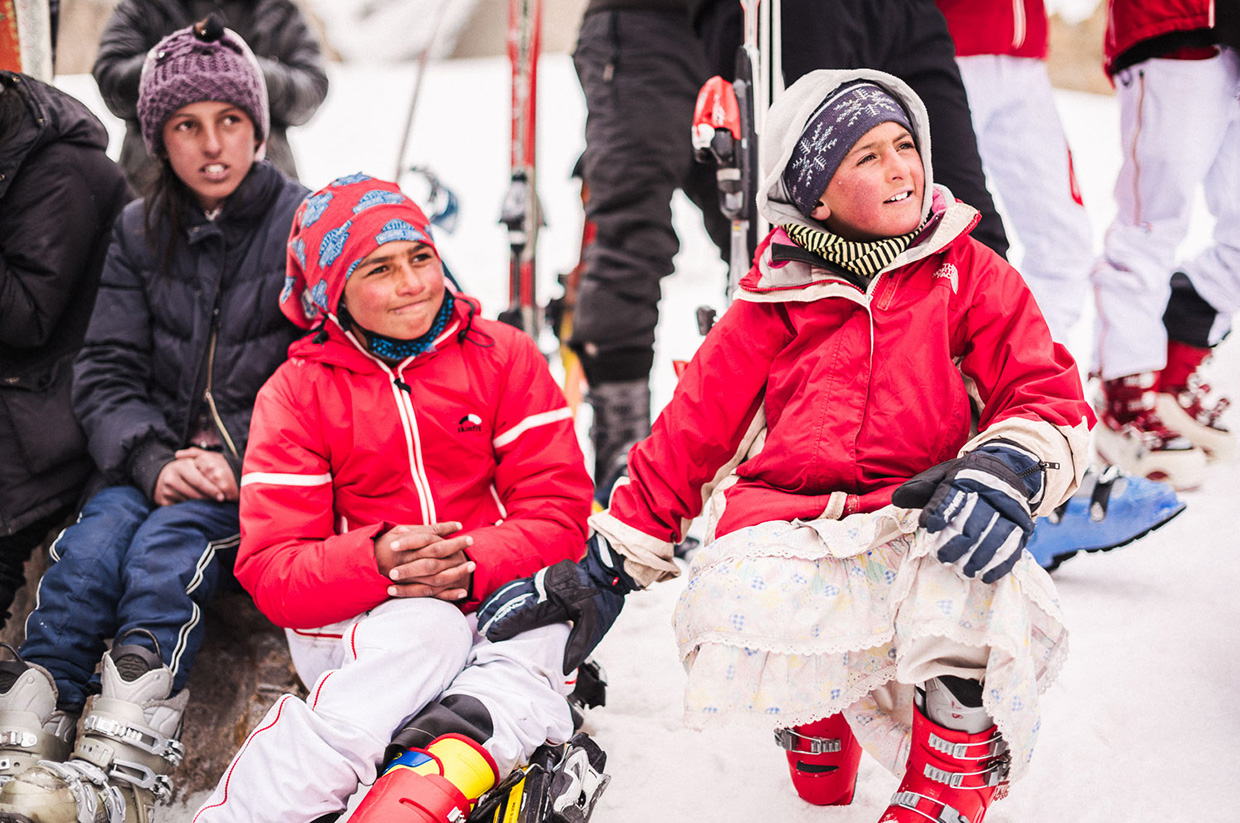
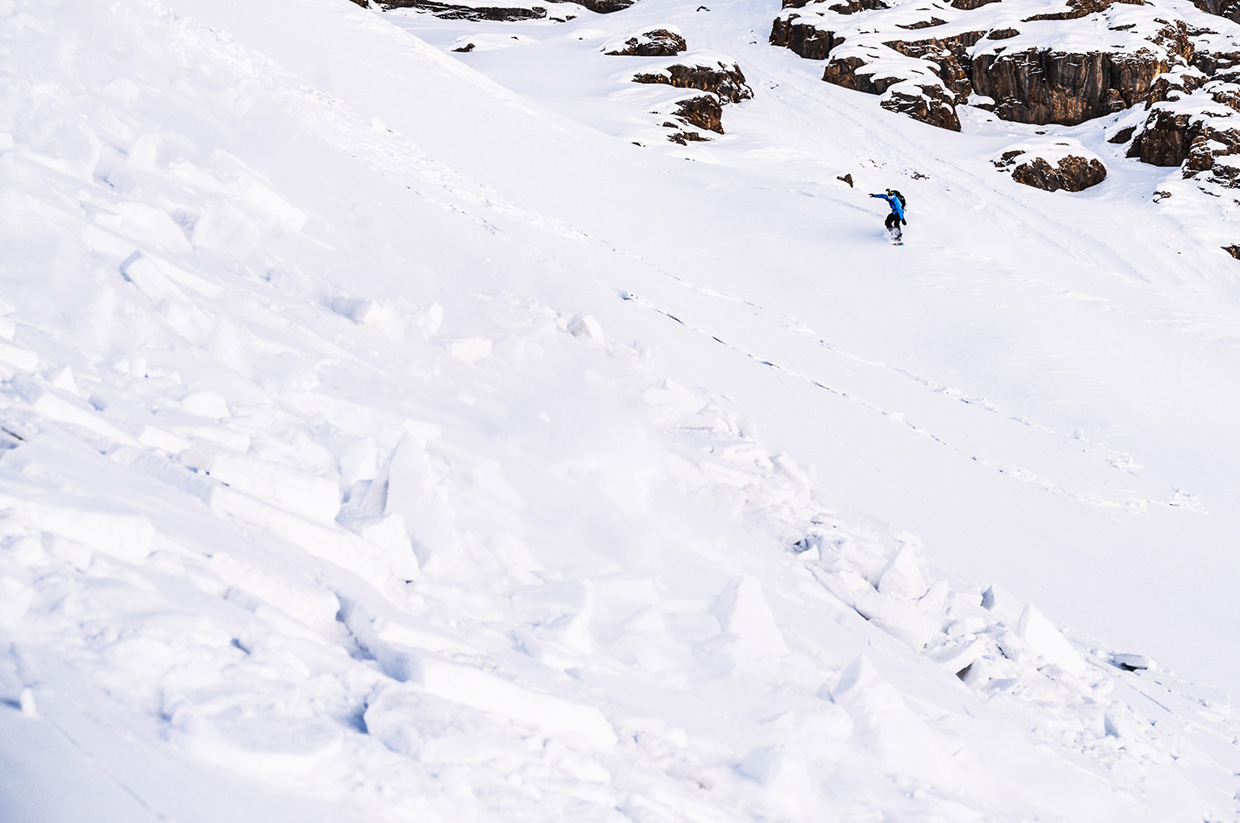
After finishing the ski course with the young people, we took the chance to explore the area by ourselves. Although we longed for powder, the incredible Himalayan scenery made up for lousy snow conditions. We walked deeper into the valley and spent a night in a simple stone hut. The temperature began to plummet as the sun sank, but luckily we could use some of the leftover dried yak dung to make a fire and keep our toes from freezing overnight. The next morning we were exhausted. Despite our fatigue, the day welcomed us with perfect weather conditions and left no excuse not to go for a little ski tour. As our adventure continued, we enjoyed the first descent of a couloir deep in the valley. Solitude and pristine natural beauty surrounded us, and we marvelled at the absolute stillness of our peaceful environment. It was an experience that left us with a strong wish to return soon. The possibilities for first ascents and descents are just about endless.
The cultural experiences of our adventure will stick with us for a long time. For example, our food had four legs and walked with us up to the camp on the first day. When the goat was butchered and served, we ate not only the usual cuts of meat, but everything else – even the head and tongue (to be honest, not our favourite dish). But the things we remember most are unfamiliar rituals, and situations that challenged our usual thinking patterns. Our adventure in Pakistan opened our eyes to a completely different culture.
The kids shine brightly in my memory. They never got tired. After six or seven hours on their skis, they still had lots of energy to dance and sing. Nobody missed modern electronic entertainment, such as television or the beloved smartphone – there was no reception anyway. We taught them some of our traditional Tyrolean songs and danced the Schuhplattler for them. Our aprés-ski party was always kind of wild and a good place to warm up freezing toes. Girls and boys were laughing and celebrating together – and I think that is what truly defines the success of our mission to me.
People like Mirza are needed to promote youth projects and push the outdoor sports industry in Pakistan, and people like Samina are needed to act as role models for gender equality. But all this makes even more of a difference when people from far away open up their minds and get to know this beautiful country and its possibilities first hand. Only then will people like Mirza and Samina get the publicity they need – to go further, to help more young people, and to bring their ideals to life.
The kids shine brightly in my memory. They never got tired. After six or seven hours on their skis, they still had lots of energy to dance and sing. Nobody missed modern electronic entertainment, such as television or the beloved smartphone – there was no reception anyway.
The NGO www.stepzeropointone.org is an organisation helping to realise social projects all over the world. Because of our mountaineering background our main focus is Pakistan and Nepal. We simply want to give the people something back. Every € of donations is going straight to where it belongs. For Pakistan, for example, we collected skiing gear and used the donations to send all the material to Pakistan. Previously, we built a health post in the Diamir Roi Valley in 2006. This facility is still needing continuous donations to ensure it is well equipped with medical supplies. If you would like to support people in one of the most beautiful but also poorest regions of the world, please do so here: stepzeropointone.org – Stefan Ager, Bergkult Productions.
Photography and film by @janericeuler


